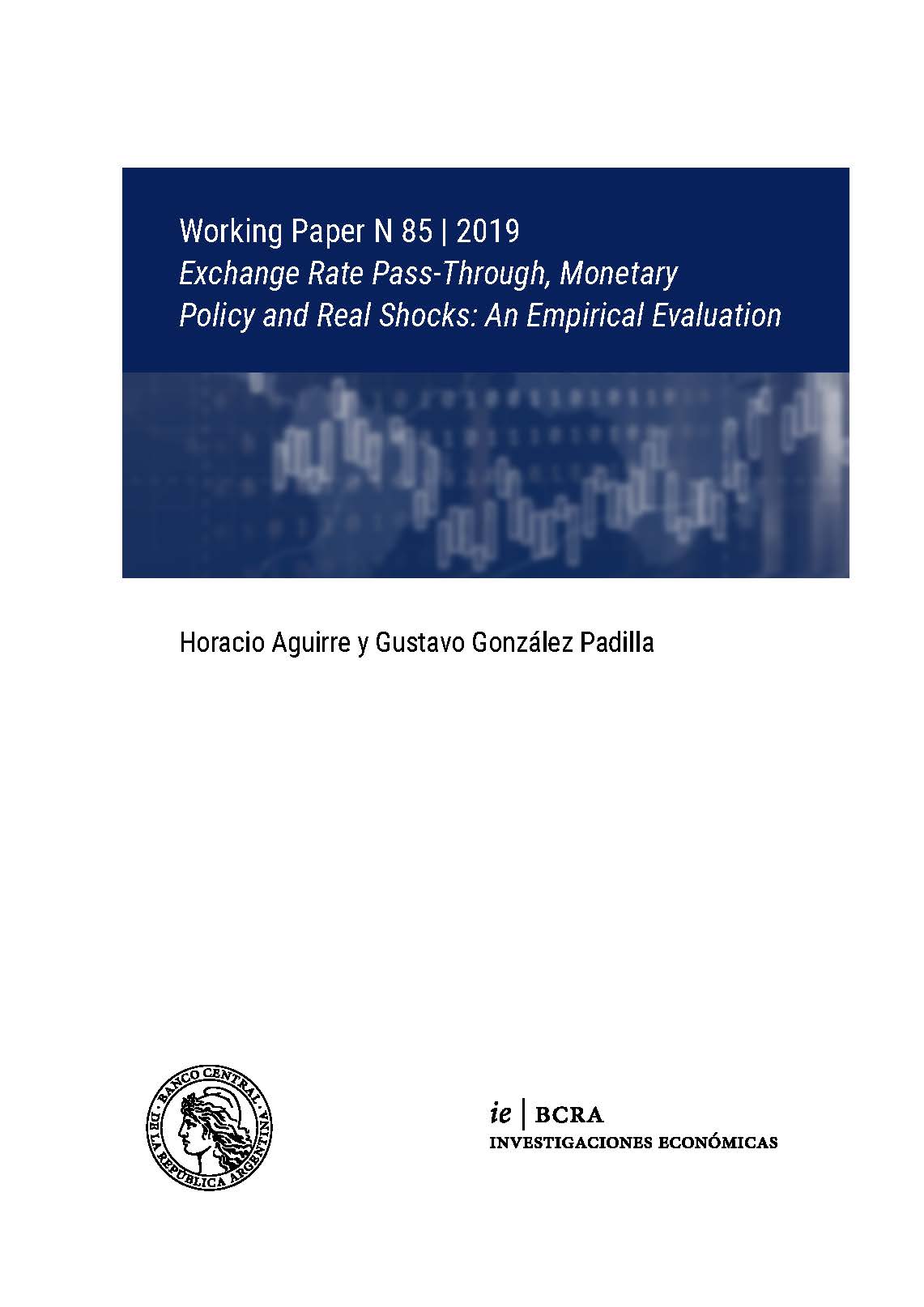Exchange Rate Pass-Through, Monetary Policy and Real Shocks: An Empirical Evaluation
Working papers | 2019 | N 85
Keywords:
Exchange rate pass through, Monetary policy, Panel data modelsAbstract
We look at a panel of Latin American countries from 1970 and 2016 to enquire how exchange rate pass-through has changed over time, and whether this owes to monetary or real shocks hitting the economy. We estimate conventional pass-through measures, both short and long run; then we obtain rolling estimates of those measures, and relate them to monetary and real variables using fixed effect models. We find that: in keeping with previous studies, pass-through coefficients have fallen sharply in recent decades in Latin America; money growth tends to be strongly associated to short-run exchange rate pass through, with a small influence of real shocks such as terms-of-trade changes; money growth is also associated to long-run pass-through, while terms of trade shocks are more statistically significant. Results are consistent with the hypothesis that ERPT changes with the kind of shock and the monetary policy response to it.
JEL classification: F31, E31, E52, C23


